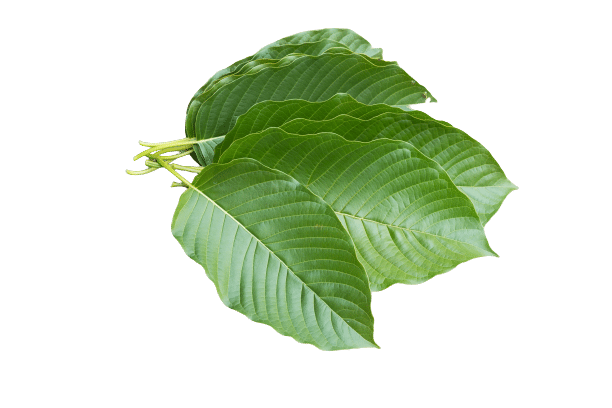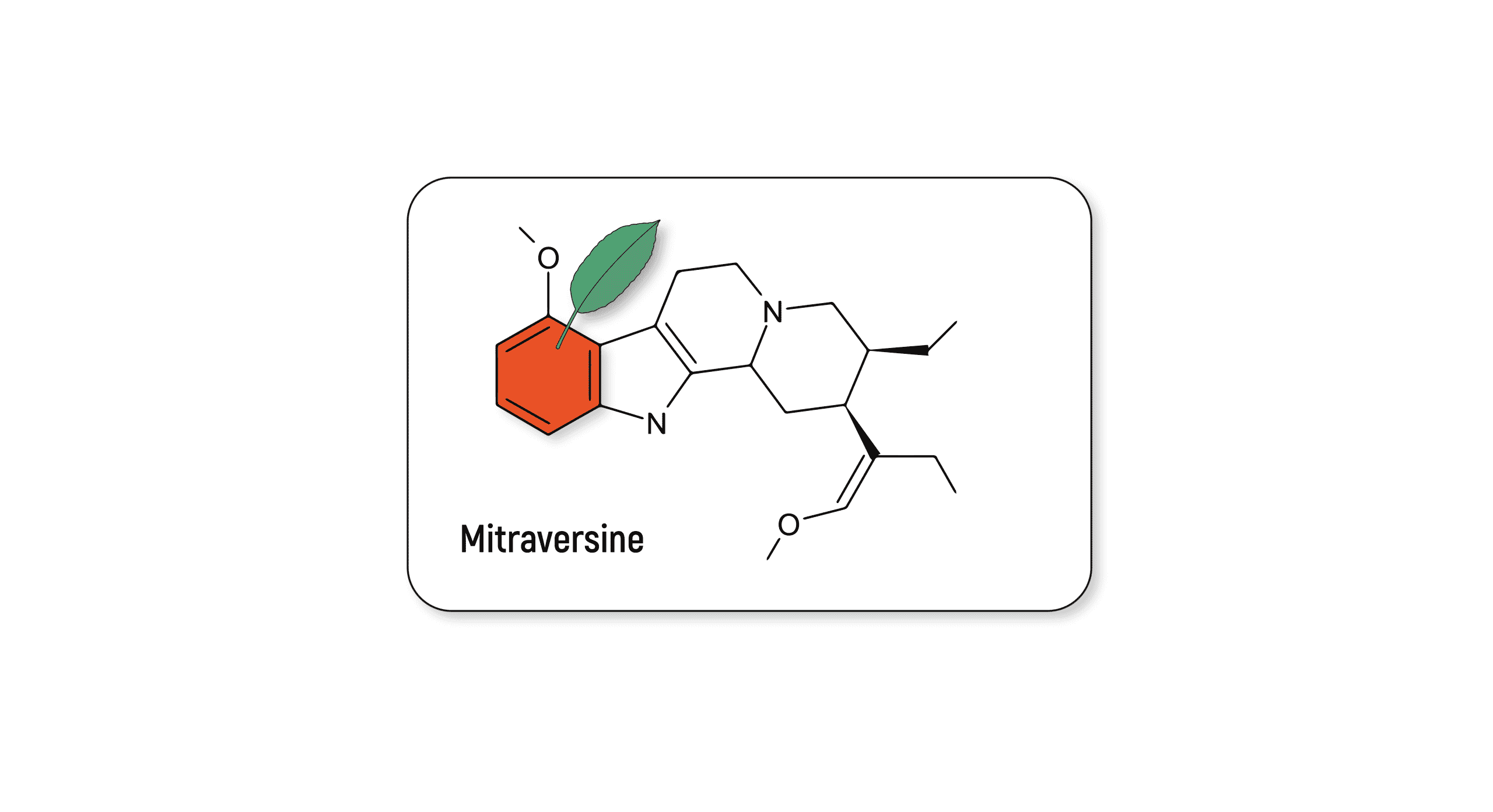What Is Kratom?
Kratom (Mitragyna speciosa) is an herb from Southeast Asia related to the coffee family that has an impressive array of effects. For centuries, kratom was a household staple, a traditional Indonesian and Thai medicine used for many conditions.
Recently, kratom has gained popularity in the west for its unique benefits and potential to offer some people an alternative to dangerous drugs.
People find relief from many problems, including the following:
- Mood disorders like anxiety and depression
- Insomnia
- Chronic pain
Not just that, but there are other things kratom helps with, such as:
- Energy
- Weight loss
- Concentration
- Libido
Unfortunately, not everyone agrees that kratom is beneficial, leading some to lobby for regulating it or banning it outright.
Is Kratom an Opioid?
No, kratom is not an opioid. Kratom contains many alkaloids that interact with the body’s opioid receptors, leading some people incorrectly to assume it is an opioid similar to morphine, codeine, and heroin. Despite binding with opioid receptors in the central nervous system, kratom is not an opioid and should not be lumped together with dangerous drugs like heroin.

The Argument for Banning or Regulating Kratom
Regulating is not the same as banning or outlawing. Regulating a substance means that certain laws are in place that controls how it’s processed and sold. Banning it means it’s illegal to process, buy, and sell.
Every argument has two sides, and the people who want to regulate or ban kratom have some valid points that need to be considered. To understand the complete picture, let’s look at a few common arguments.
1. Addictive Substance
Kratom is addicting, making many people feel like it should be automatically banned. Irresponsible kratom use can lead to addiction and physical dependence, but it’s essential to consider that it’s possible to regulate your use to reduce the risks. Limiting weekly intake and taking regular breaks is deemed to be safe.
It’s also important to realize that many addictive substances have viable use cases, ultimately coming down to a cost-benefit analysis. For some people with crippling pain, kratom offers a less dangerous alternative to dangerous narcotics, especially since kratom’s side effects tend to be minor.
2. Unregulated Source
Kratom comes from Indonesia, so the United States has no control over how its grown, processed, or packaged. Some people express concern that having an unregulated source could introduce dangerous unknowns into kratom that enters the country.
Although forming relationships with trustworthy vendors and testing products goes a long way to eliminating these concerns, this is a good point. Ultimately, there is currently a burden on the customer to do their due diligence before buying kratom, and regulating kratom sources could be a viable solution.
3. Potential for Contaminants
A similar problem to having unregulated sources is the potential contamination of kratom products. It’s frighteningly common for unreputable companies to sell kratom that has been contaminated with bacteria, mold, or dangerous chemicals like solvents and heavy metals. Regulating kratom could involve mandating testing for all kratom products before they can be sold.
Some companies already do this without a mandate, making it less critical for broad regulation to enforce it. Reputable companies like Kona Kratom, Star Kratom, and VIP Kratom have their products extensively tested by independent labs to ensure they are safe and accurately labeled.
4. Minimal Research on Long-Term Use
Another argument for regulating or banning kratom is that there aren’t any long-term studies. Kratom has not been cleared for clinical use, and there are relatively few studies of it in a clinical setting.
Unfortunately, rarely do we have the luxury of having ideal circumstances. The truth is that kratom may be the best option for some people, regardless of its unknown long-term effects.
What’s more, cigarettes and alcohol have debilitating effects on long-term health, yet they aren’t banned. Experts suggest responsible use guidelines to mitigate the risks, and it’s left at that. A similar approach could work for kratom, with similar warnings on labels indicating the level of risk involved.
5. Opiate-Like Herb
Even though kratom is not an opioid, some people use its similarities to argue that it should be illegal. This makes sense on some level, although it’s important to note the differences as well. For example, kratom is unlikely to cause overdose and is nowhere near as addictive as opiates. Educating people about kratom’s benefits and risks is likely a better option than banning it just because it’s similar to more dangerous drugs.

The Argument for Unregulated Kratom
There are just as many — if not more — arguments that kratom should remain unregulated. Here are some of the most compelling.
1. Affordable
First, kratom is far more affordable than common treatments for anxiety, depression, and chronic pain. Individuals who can’t afford insurance or whose insurance won’t cover the medication they need certainly can’t afford to pay the exorbitant prices fetched by most prescription drugs.
Kratom is much more affordable than most prescriptions, making it viable for someone to buy it themselves without going through an insurance company.
If kratom is banned, it won’t be accessible at all, and regulating it usually means higher prices due to taxes and other extras that come up when the government is involved.
2. More Accessible
Kratom is also accessible, primarily due to its low cost. With the advent of respected online kratom vendors, anyone can order kratom directly to their home with little effort or hassle. This makes it easier for people to manage their conditions using kratom without stressing over medical bills or insurance premiums.
3. Third-Party Testing Already Sets Safe Kratom Apart
Safety is a significant concern throughout the kratom community. The people who propose banning or regulating kratom raise some good points, although third-party testing within the kratom industry already takes care of most concerns.
Well-respected kratom vendors like Kona Kratom, Star Kratom, and VIP Kratom have batches of their products tested by independent laboratories for safety and purity, ensuring that their products aren’t adulterated with dangerous chemicals. Shopping at companies that have established public testing protocols makes it easy to identify reputable, safe sources.
4. Legal Opioid Alternative
Opioid addiction is a sinister illness that few people recover from, making it all the more impressive that kratom helps many opioid abusers recover from their dependence. Kratom can ease the symptoms of opioid withdrawal, making it less likely for people in recovery to experience relapses.
Without kratom’s help, countless people who could otherwise escape their addiction will continue to be trapped. Kratom is generally considered far less insidious than potent opioids like codeine and heroin, making it a good path to sobriety if used responsibly.
Should Kratom Be Banned?
While both sides raise interesting points, kratom should almost certainly not be banned. Kratom’s pros outweigh its cons for many people, and it has the potential for unforeseen future applications.
1. Potential Medicinal Uses
Kratom is relatively unstudied, but the pharmacological research so far backs the anecdotal evidence amassed by kratom users [1, 2, 3]. Combined with its history of use in traditional Asian medicine, it seems likely that kratom has a promising future in medicine. Banning kratom would only make it harder to study.
Illegal drugs like LSD, MDMA, and psilocybin were previously discarded as recreational drugs, only for them to find legitimate medicinal uses later.
2. Many People Rely On It
Banning kratom would leave many users with no choice but to use more dangerous and addictive drugs to manage their pain. Many kratom users say that it gave them their life back, helping them live a mostly normal life despite their medical condition.
Without providing a safe, accessible alternative, banning kratom would inflict unnecessary pain and suffering on countless people who use kratom to manage complex health conditions.
3. It’s a Natural Herb
Kratom is 100% natural, meaning it doesn’t come with any concerns over synthetic substances or artificial chemicals. Of course, being natural alone doesn’t make something safe and worthwhile, but it does remove much of the fears surrounding new drugs like new psychoactive substances and synthetic cannabinoids.
4. It’s Relatively Safe
Kratom is mainly safe to use, especially compared to the dangerous drugs it’s often replacing. Most complications associated with kratom have been traced to other substances mixed with it rather than kratom itself. It seems paradoxical for alcohol and nicotine to remain legal if kratom is banned based on safety concerns.
Regulation Over Ban
Luckily, there is a path forward that addresses people’s concerns with unregulated kratom while preserving most of the benefits of having widely accessible kratom. Regulating kratom as a dietary supplement would subject it to approval without making it impossible to attain, finding a reasonable middle ground between keeping it completely unregulated and banning it.
Dietary supplements like vitamins are subject to safety standards and warning labels, making regulating kratom as a supplement a viable solution to two of the main concerns people looking to ban kratom have. It also makes it easy for anyone to purchase kratom without needing a prescription, keeping it accessible and affordable.

Wrapping Up: Should Kratom Be Regulated or Banned?
Ultimately, the battle over regulating kratom will come down to compromise. People who want to ban kratom don’t usually have the whole picture and treat it like a legal version of heroin. They don’t realize that kratom is not an opioid, is far less addictive than most illegal opiates, and is actually used to treat the symptoms of opioid withdrawal.
Similarly, kratom users need to be willing to make some concessions and recognize that there are legitimate concerns over the safety of kratom. Even though there are numerous kratom success stories, many of the issues with unregulated kratom are warranted.
A bright future for kratom probably involves some form of regulation. Many people make a compelling case for treating it legally as a dietary supplement rather than a prescription drug. Only time will tell what kratom’s future holds, but hopefully, the two sides can find a solution that addresses concerns without taking away a godsend for so many people.
- Fluyau, D., & Revadigar, N. (2017). Biochemical benefits, diagnosis, and clinical risks evaluation of kratom. Frontiers in psychiatry, 8, 62.
- Halpenny, G. M. (2017). Mitragyna speciosa: Balancing potential medical benefits and abuse. ACS Medicinal Chemistry Letters, 8(9), 897-899.
- Firmansyah, A., Sundalian, M., & Taufiq, M. (2021). Kratom (Mitragyna speciosa korth) for a new medicinal: A review of pharmacological and compound analysis. Biointerface Research in Applied Chemistry, 11(2), 9704-9718.









